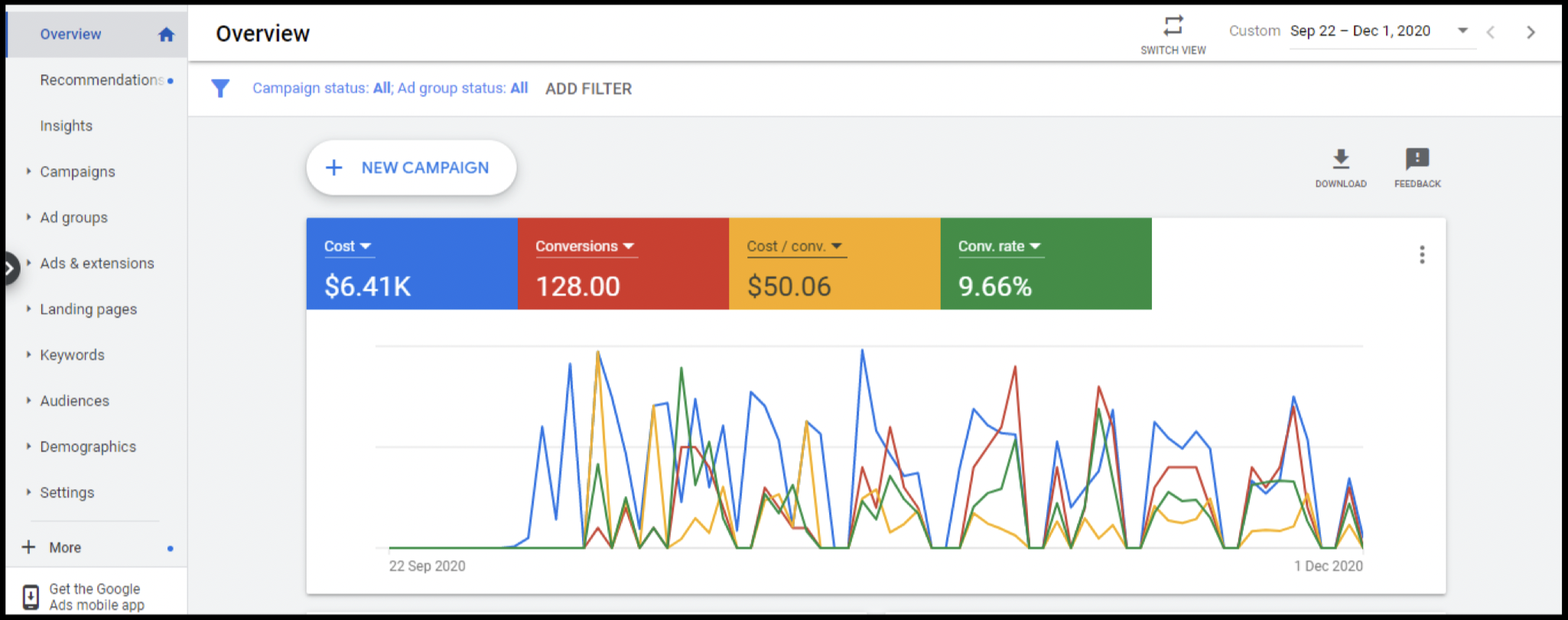Key Takeaway
The short answer is no, Google Ads do not directly impact SEO. However, they can indirectly support SEO efforts in various ways.
How Do Google Ads Affect SEO?
In today’s competitive digital marketing landscape, understanding the relationship between Google Ads and SEO can be key to maximising your marketing efforts. Although Google Ads don’t directly affect SEO rankings, aligning your ad strategies with your SEO goals can yield substantial benefits. Knowing how these two approaches can complement each other will help you plan more strategically and allocate your budget for the best results.
What is Google Ads?
Google Ads is an influential online advertising platform developed by Google. It allows businesses to create ads that appear on Google’s search engine results pages (SERPs) and across a network of partner sites. With a range of powerful tools, Google Ads is designed to help businesses reach broader audiences and achieve specific marketing goals. Some of its key features include:
- Varied Ad Formats: Google Ads supports text ads, video ads, display ads, and shopping ads to reach audiences in different ways.
- Advanced Targeting Options: Advertisers can target users based on behaviour, keywords, location, demographics, and more.
- Bid-Based System: Advertisers place bids on keywords relevant to their products or services to secure ad placements.
- Performance Analytics: Google Ads provides detailed performance tracking to optimise campaigns and improve results over time.
Learn more about: How to Optimise Google Ads
What is SEO?
Search Engine Optimisation (SEO) is the process of enhancing a website to improve both the quality and quantity of traffic from search engines. Unlike Google Ads, SEO focuses on organic traffic rather than paid placements. Through optimising specific site elements, SEO helps search engines understand and rank content effectively, ultimately boosting site visibility.
Key SEO Components:
- On-Page SEO: Optimising content and HTML source code to improve visibility.
- Keyword Research: Identifying high-value keywords that align with user intent.
- Technical SEO: Improving backend factors like site speed and mobile-friendliness.
- Off-Page SEO: Building backlinks and social signals to boost site authority.
Google Ads vs. SEO: Key Differences
While Google Ads and SEO serve unique purposes, using both together can be an effective strategy for driving traffic. Here’s how they differ:
- Cost: Google Ads requires paying per click, while SEO is technically “free,” though it requires time and resources.
- Time to Results: Google Ads generate instant visibility, whereas SEO efforts can take weeks or even months to show results.
- Control: With Google Ads, ad placement and formatting are managed by Google, while SEO gives you more control over organic optimisation.
- Goals: Google Ads focuses on achieving immediate, targeted visibility, while SEO aims to build long-term, sustainable traffic.
- Keywords: Google Ads can target many keywords simultaneously, whereas SEO benefits most from targeted, niche keywords.
- Marketing Approach: Google Ads are outbound, directly reaching potential customers, while SEO is inbound, attracting customers searching for relevant content.
In short, Google Ads acts like a sprinter, driving immediate results, while SEO is more of a marathon runner, establishing a steady, long-term presence.
Does Google Ads Impact SEO?
Despite frequent speculation, Google has confirmed that Google Ads does not directly impact SEO. Google’s algorithm treats these as separate entities. However, running Google Ads can have an indirect impact by increasing site traffic, which can, in turn, boost visibility and brand recognition, potentially benefiting SEO performance in a roundabout way.

How to Align Google Ads with SEO
Leveraging Google Ads and SEO in tandem can amplify your online presence and improve your marketing ROI. Here are some actionable tips to align these strategies effectively:
- Keep Messaging Consistent Across Channels
Ensure that your Google Ads, SEO content, and social media messaging align. Consistent messaging across channels strengthens brand identity and reduces confusion for users.
- Use Google Ads and SEO for Lead Generation
Combine Google Ads’ immediate reach with SEO’s long-term visibility to maximise lead generation opportunities.
- Encourage Customer Reviews
Positive reviews enhance both ad performance and SEO by boosting credibility and aiding local SEO rankings.
- Run Local Search Ads
Local search ads can help you target a specific audience effectively, reinforcing local SEO efforts.
- Establish Credibility Through Paid and Organic Listings
Appearing in both paid and organic results enhances trust and brand authority, giving users multiple ways to discover your business.
- Optimise Ads with Strong Calls-to-Action
Ads should include a clear call-to-action (CTA) and, if possible, display customer reviews to improve click-through and conversion rates.
- Develop a Unified Strategy for Google Ads and SEO
Create an integrated lead-generation strategy that combines insights from both Google Ads performance metrics and SEO analytics to guide content and targeting efforts.
Google Adword Experts
While Google Ads does not directly influence SEO rankings, both strategies can complement each other effectively. Google Ads can provide immediate visibility and data insights, while SEO builds sustainable, long-term traffic. By aligning these approaches, you can build a more robust digital marketing strategy.
Managing both Google Ads and SEO effectively requires expertise and strategic planning. If you’re looking for guidance on creating a comprehensive ad campaign that supports your broader marketing goals, our team at J-Digital is here to help. Check out our google ads services or contact us today to schedule a free consultation and discover how we’ve transformed businesses just like yours.

